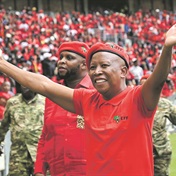
Africa’s ability to recover from economic shocks should not be underestimated. Although sub-Saharan Africa is experiencing its first recession in twenty-five years with a 3.3% decline in economic activity (World Bank), the political risk calculation in respect of African investments has significantly improved as investors face uncertainty in developed markets previously viewed as economically stable.
But, successful investment in Africa does not happen overnight and requires important considerations.
DIVERSE SOCIO-ECONOMIC LANDSCAPES
The continent’s one billion population is made up of diverse cultural groups, divergent consumption preferences and spending patterns across all countries, each with unique risks and potential.
A LONGER-THAN-USUAL INVESTMENT PERIOD
Investing in Africa takes longer than the standard deal-making periods that most international investors would anticipate, taking a few years to source the right deal after having built relationships and established trust.
READ: How Africa can defuse unemployment time bomb
Getting to know potential partners and understanding the environment in which the target company operates requires commitment and time. Building and creating value also takes time. In all probability, it could take around seven years after the initial investment before a structured exit could be generated and value is realised.”
PRODUCT ADJUSTMENT FORDIFFERENT MARKETS
Africa’s potential is linked to its emerging middle class which is the fastest growing in the world; according to the World Bank it stands at 350 million people.
The reality is that although consumer spending accounts for 50% to 60% of Africa’s economic growth, 85% of Africans live on less than $5.50 per day (World Bank 2019). Therefore, bringing global products to African markets will require adjustment to meet the limited purchase power of local consumers.
UNDERSTANDING DISTRIBUTION CHANNELS
Struggles with logistics and distribution are common in Africa, partly as a result of poor infrastructure. While the African Continental Free Trade Area that will come into operation in early 2021 is a potential game changer, Africa’s commercial challenges linked to distribution will likely remain. Market polarities result in low instances of successful product replication in other African jurisdictions.
Additionally, building local distribution channels to the end-consumer in a location without formal infrastructure takes a tremendous amount of effort.
Local businesses in Africa that are successful, know their markets and distribution channels.
Owning the distribution channels in Africa can bring competitive advantage, but many investors will not have the resources of time, effort and a high learning cost to build this up successfully.
For those companies wishing to make an investment, and particularly when they don’t have an existing in-country presence, the best advice is to partner with businesses or investment advisors who do understand these markets and can tap into the local context.
Once having successfully tapped into the market, expansion could likely be achieved more effectively through the development of new products within the same country, using the same distribution method.
UNDERTAKING A 360 DEGREE DUE DILIGENCE
A thorough due diligence process will create a full image of the potential investment in order to ascertain whether it will be a good fit, whether the business is built around the owner and if so, what the likelihood is of the business running as before should the owner take a minority position or exit altogether.
The due diligence should include supplementary information from “outside” sources about the business and its perception in the market and an assessment of post-transaction business environment changes once the target company’s founder is no longer in control.
Although the company may look good to an outside investor, little is usually known about how the interaction with the direct business environment will change post-transaction. There are ample examples of government policy or distributor- and client-relationship changes that negatively impact the company’s operating model immediately post-transaction due to the underestimated influence of the founding shareholder on this business environment.
Doing business in Africa is significantly relationship-based. Building a business requires access to the right people and often requires intensive interaction with government as a stakeholder, being well-connected in order to find opportunities or to be introduced to existing distribution channels and established service providers.
ALWAYS INVEST WITH THERIGHT LOCAL PARTNER
The intricacies of doing business in Africa take great skill to manoeuvre, and can only successfully be done by entrepreneurs who’ve been doing it for a long time in that country. Don’t try to go in alone, there are few instances of success stories via this route.
For those who invest time and effort into understanding the market, taking into account those unique cultural, social, consumer and business environments that exist on the continent, and understand that it’s critical to partner with the right people, significant investment opportunities await.
Bergman is a corporate finance principal at independent investment banking firm Bravura.
| ||||||||||||||||||||||||||||||
 |




 Publications
Publications
 Partners
Partners










